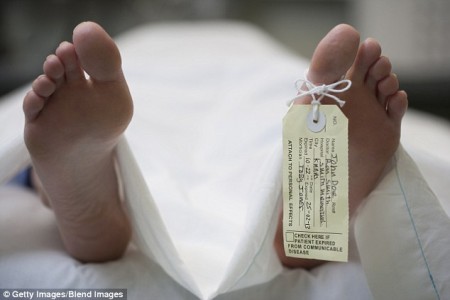June 24, 2016 – An interesting question that new research is shedding light upon, dying doesn’t necessarily suppress everything in our bodies. No we are not talking about the metaphysical soul of religion, but rather genes. Apparently when a life ends gene expression doesn’t. Logically we would think the end of a life means that all biological systems shut down, but 1,063 genes in two studied species, mice and zebrafish, continue to function for periods of 48 to 96 hours after death. It appears that our genes may not give up after we stop breathing and brain function ceases, at least if we are a mouse or fish.
The genes in question have been given a name by the researchers. It is thanatotranscriptome. And in a paper appearing online in bioRxiv, the process is described. Apparently the gene response kicks in within 30 minutes after death, and some wait 24 to 48 hours before kicking in. Thanatotranscriptome genes are associated with stress, immunity, inflammation, apoptosis (the controlled death of cells during normal growth and development), transport development, epigenetic regulation, and cancer.
One newspaper in reporting this discovered phenomenon ran the headline, Could there be life after death? The research has been done at the University of Washington. What scientists discovered is that in both mice and zebrafish, the genes affected were those that sent instructions to proteins or were regulatory, indicating that in death energy was still being consumed. Many of the genes identified are associated with self-organizing, including embryonic development processes. So it is as if in death life attempts a restart. But other genes may be demonstrating another behavior after death, an orderly process of system shut down.
The discovery of cancer genes expressing themselves after death may give scientists answers to why organ transplants from deceased donors produce higher incidents of cancer in recipients.
And as a final note the other key beneficiary of this new knowledge is criminal science. Knowing that genes continue to express themselves after death will give forensic specialists a more accurate measure for calculating time of death in criminal cases. A parallel paper published in the same journal describes the implications of the new discovery for criminology.









